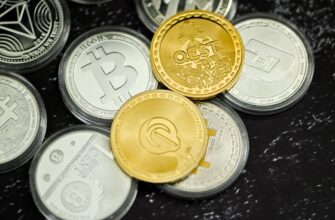Introduction: South Korea’s Crypto Revolution
South Korea has emerged as a global cryptocurrency powerhouse, with “crypto Korea” becoming synonymous with cutting-edge blockchain adoption. Fueled by tech-savvy citizens and progressive regulations, Korea’s crypto market boasts one of the world’s highest per-capita trading volumes. This guide explores why this Asian tiger economy dominates the digital asset landscape.
The Meteoric Rise of Crypto in Korea
Since Bitcoin’s early days, Korea has embraced cryptocurrencies with unparalleled enthusiasm. Key milestones include:
- 2017 Boom: Korea accounted for 30% of global Ethereum trading during the ICO craze
- Kimchi Premium: Crypto prices regularly traded 10-30% higher on Korean exchanges due to intense demand
- 2021 Institutional Adoption: Major corporations like Samsung and Kakao invested billions in blockchain infrastructure
Why Korea Became a Global Crypto Hub
Several unique factors propelled Korea’s crypto dominance:
- Tech Infrastructure: World’s fastest internet speeds and 96% smartphone penetration
- Cultural Factors: Youth-driven investment culture and fascination with tech innovations
- Regulatory Evolution: Progressive frameworks like the Special Financial Transactions Act
- Corporate Investment: Heavy backing from Korea’s tech conglomerates (chaebols)
Top Cryptocurrencies in the Korean Market
While Bitcoin and Ethereum dominate globally, Korea’s market shows distinct preferences:
- Bitcoin (BTC): Still the most traded asset on Korean exchanges
- Ethereum (ETH): Favored for DeFi and NFT projects
- XRP: Maintains unusual popularity despite global controversies
- Local Tokens: Klaytn (Kakao) and SAND (from Korean gaming giant) have strong followings
Navigating Korea’s Crypto Regulations
Korea’s regulatory landscape has evolved significantly:
- Real-Name Verification: Mandatory KYC linking bank accounts to exchange profiles
- Travel Rule: Exchanges must share sender/receiver data for transactions over $820
- Taxation: 20% capital gains tax on profits exceeding $1,900 (deferred until 2025)
- ICO Ban Lifted: Initial coin offerings now permitted under strict guidelines
How to Buy Crypto in Korea: Step-by-Step
Follow this roadmap to enter Korea’s crypto market:
- Choose a licensed exchange (Upbit, Bithumb, or Korbit)
- Complete identity verification with Korean bank account
- Depit KRW via bank transfer
- Start trading with market/limit orders
- Withdraw to private wallets for long-term holding
The Future of Crypto in Korea
Emerging trends shaping Korea’s crypto landscape:
- CBDC Development: Bank of Korea testing digital won prototypes
- Metaverse Expansion: Major investments in virtual real estate and NFTs
- DeFi Growth: Decentralized exchanges gaining market share
- Global Partnerships: Korean blockchain firms expanding across Southeast Asia
Crypto Korea FAQ
Q: Is cryptocurrency legal in South Korea?
A: Yes, crypto trading is legal on licensed exchanges with proper KYC procedures.
Q: What’s the best Korean crypto exchange?
A: Upbit dominates with 80% market share, followed by Bithumb and Korbit.
Q: Do foreigners need residency to trade crypto in Korea?
A: Foreigners with ARC cards and Korean bank accounts can trade on local exchanges.
Q: When will Korea implement crypto taxes?
A: The 20% capital gains tax on profits over $1,900 is scheduled for January 2025.
Q: How does Korea regulate NFTs?
A: NFTs aren’t classified as virtual assets unless used as payment instruments.
Q: Are there Korean crypto ETFs?
A: Not yet – regulators haven’t approved crypto ETFs despite growing institutional demand.








